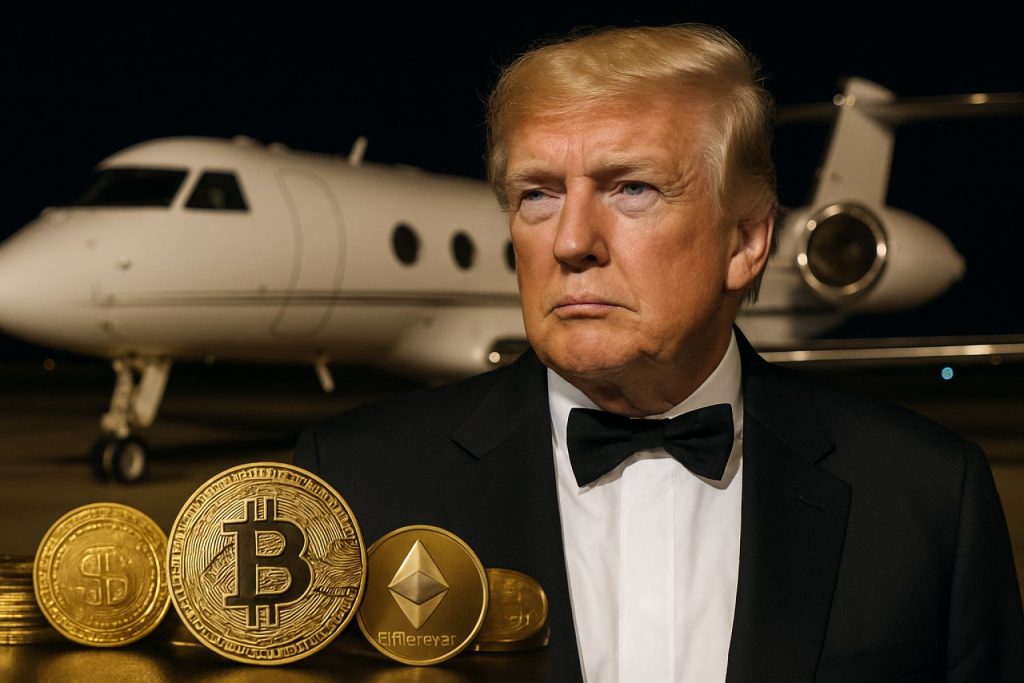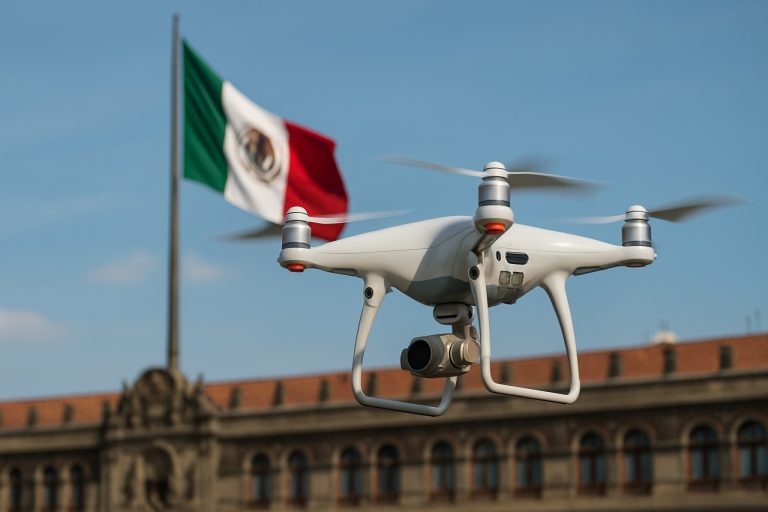
- The $TRUMP meme coin gala showcased the powerful intersection of cryptocurrency, politics, and celebrity influence.
- Over $148 million was invested in the event, highlighting the allure and high stakes of digital currencies tied to political figures.
- Meme coins, unlike established cryptocurrencies like Bitcoin and Ethereum, raise significant ethical and legal questions about influence-peddling and policy favoritism.
- The Securities and Exchange Commission (SEC) faces challenges regulating politician-endorsed digital assets amid growing uncertainty and lack of transparency.
- Political leaders have increasingly blurred lines between public duty and personal gain, often evading accountability for luxury gifts and questionable fundraising tactics.
- Calls for stronger regulation and oversight grow as the convergence of crypto and politics threatens the integrity of democratic governance.
Golden chandeliers gleamed over pressed tuxedos and shimmering gowns at a private golf club in Sterling, Virginia. There, inside Trump National’s cloistered walls, nearly 220 figures from the world of crypto and celebrity gathered—each having paid dearly for entry. This was not your average fundraising dinner. It was a high-rolling, high-wire act celebrating the newest—and perhaps most controversial—intersection of politics and tech: $TRUMP, the meme coin brandishing the former president’s name.
A Night of Crypto Splendor—and Questions
Investors and influencers poured $148 million into this gala, lured by the prospect of proximity and a future entwined with political power. As servers glided through the candle-lit halls with polished trays, power brokers pressed the flesh, angling for a few coveted minutes next to a former president already famous for breaking the rules of engagement. By morning, though, the glitter faded—a 16% drop in $TRUMP’s value underscored how quickly fortunes shift in the world of digital currency.
The New Playbook—Political Connections for Crypto Windfalls
Recent months have seen the fusion of blockchain hype and political influence reach a fever pitch. Cryptocurrencies such as Bitcoin and Ethereum are now household names, but meme coins—highly speculative tokens fuelled by internet culture and, in this case, proximity to real-world power—push ethical boundaries unheard of in traditional finance.
While digital assets remain largely unregulated in the United States, watchdogs and policy experts have warned that politician-endorsed coins could become vehicles for influence-peddling or even steer policy in favor of wealthy benefactors. The Securities and Exchange Commission (SEC) continues to wrestle with defining how such assets fit—or don’t—within the existing legal framework. In the midst of this uncertainty, the $TRUMP coin and its gala raise hard questions about transparency, accountability, and the entwined destinies of tech disruptors and political movements.
Evasion as a Political Tool
Notably absent from the national conversation was Speaker of the House Mike Johnson. When pressed repeatedly about the event and other ethically fraught gifts, including a lavish Boeing 747 jetliner from the Qatari government, Johnson responded with the practiced nonchalance of a veteran political operator. He insisted he was “too busy” shepherding a major congressional bill to track “all the twists and turns”—a refrain now familiar as scrutiny mounts around the leadership’s willingness to address the ethical gray zones at these intersections of power.
This strategy of selective awareness—the artful dodge rather than answers—reflects an increasingly common response inside the Beltway. No matter the stakes, the lines grow blurrier as public figures parry concerns, citing packed schedules while sidestepping the glare of accountability.
The Stakes: Reputation and Rule of Law
History has shown that the trappings of power—whether in the form of opulent jets or promise-laden investments—come with strings attached. The U.S. Constitution bars leaders from accepting foreign gifts without congressional approval, a safeguard meant to preserve impartial governance. Yet with technological advancements—particularly in the fast-evolving world of blockchains and digital assets—these protections are being sorely tested.
Investors attracted to meme coins are no strangers to volatility, but voters have the right to expect ethical clarity from those at the helm. As the boundaries between fundraising, social media stardom, and policymaking vanish, only diligent public scrutiny—and robust legislation—can ensure representative democracy doesn’t become just another tradable asset.
Takeaway: Political leaders and their backers are now navigating a world with new currencies of power, where influence can be digitized and rules are constantly redefined. As Americans witness private galas and luxury gifts traded with casual deniability, the call for transparency and ethical rigor has never sounded more urgent. The future of politics may be written in code—but it should still answer to the public it serves.
For up-to-date, authoritative reporting and deeper analysis, visit The New York Times or CNN.
The $TRUMP Token Gala: Crypto, Politics, and the New Rules of Power—What Investors and Voters Need to Know
The collision between digital currency and American politics is no longer a hypothetical—it’s a high-stakes reality, as the recent gala at Trump National in Sterling, Virginia made clear. The emergence of the $TRUMP meme coin, backed by eye-watering investments and celebrity fanfare, marks an inflection point in how influence, technology, and regulatory oversight intersect. But beneath the glitz and headlines, there are deeper questions—and risks—every investor and conscientious citizen should weigh.
Unveiling the $TRUMP Meme Coin Phenomenon
The $TRUMP token was launched earlier this year as one of the highest-profile political meme coins to date. Unlike Bitcoin or Ethereum, which aim for monetary utility and decentralized finance, meme coins such as $TRUMP and Dogecoin trade primarily on hype and pop culture relevance. The $TRUMP token’s value rides on the former president’s brand and the speculation about his potential return to political office.
Key Facts and Insights
– The $148 million inflow during the gala instantly placed $TRUMP among the top meme coins by market cap—a rare feat for a token debut.
– Within hours, the token’s value dropped 16%, highlighting meme coin volatility. For context, mainstream coins like Bitcoin usually see single-digit moves on similar news ([source](https://www.coinbase.com)).
– Blockchain data shows wallets linked to prominent crypto traders and known political donors acquired large stakes, fueling rumors of backroom deals and insider advantages.
– The event was held in a private, members-only setting, limiting transparency and press coverage.
Features, Specs, and Risks—What Makes Political Meme Coins Unique?
Features & Specs
– Symbols: $TRUMP, with a finite token supply designed to increase scarcity.
– Liquidity: Lists on major decentralized exchanges; not always available on regulated U.S. platforms.
– Governance: No clear roadmap or long-term utility; unlike DAOs, $TRUMP holders have no voting rights.
Pricing & Market Metrics
– Initial offering price was highly speculative due to demand from both crypto enthusiasts and political supporters.
– Prone to severe price swings; liquidity can dry up quickly compared to blue-chip cryptos like Bitcoin.
Security, Transparency & Sustainability
– Meme tokens are often issued with minimal regulatory oversight, heightening the risk of pump-and-dump schemes or outright scams.
– Funds raised at the gala are not subject to traditional campaign finance rules, as crypto donations can be harder to trace and report than fiat.
Compatibility & How-To Steps
How to Purchase $TRUMP:
1. Create a compatible crypto wallet (e.g., MetaMask).
2. Transfer ETH or USDT to your wallet.
3. Connect your wallet to a recognized decentralized exchange (DEX).
4. Find the $TRUMP token contract address (verify authenticity on official communications).
5. Swap your ETH/USDT for $TRUMP.
Caution: Always triple-check contract addresses to avoid phishing tokens.
Market Forecasts, Trends & Limitations
– Industry prediction: Political meme coins are emerging as “soft power” vehicles—more about branding and influence than lasting financial value. Experts warn their popularity could wane as regulations tighten ([source](https://www.cnn.com)).
– Regulation: The SEC and CFTC continue to debate whether such tokens are securities, commodities, or something else entirely.
– Sustainability: Unless meme coins demonstrate real-world utility or governance, many analysts believe they are at risk of rapid obsolescence.
Reviews, Comparisons & Real-World Use Cases
– In practice, meme coins like $TRUMP are more about speculation and signaling allegiance than about payments, DeFi, or smart contracts.
– Unlike “utility tokens” (Chiliz—sports engagement, or Uniswap—DEX fees), $TRUMP offers no inherent function beyond trading.
– Comparisons: Non-political meme coins (like Dogecoin or Shiba Inu) have broader communities, but with less centralized celebrity or political alignment, distributing risk more evenly.
Controversies & Limitations
– Ethical Gray Zone: Legal experts highlight that tokens branded with active political figures may violate federal ethics rules if used as covert fundraising or gifts (U.S. Constitution, Article I, Section 9—the Emoluments Clause).
– Lack of Disclosure: Unlike traditional donations, crypto holdings are hard to audit in real time ([source](https://www.nytimes.com)).
– Pump-and-Dump Warnings: Crypto markets have a history of celebrities or influencers unknowingly (or knowingly) promoting assets that quickly decline in value, potentially harming retail investors.
Most Pressing Reader Questions Answered
Is it legal for politicians to promote or profit from meme coins?
Not entirely clear. The legal framework is lagging. If coins are merely collectibles or “joke” tokens, disclosure rules are minimal. If they serve as campaign donations or confer value, federal regulators (e.g., the SEC, FEC) may take notice.
Can $TRUMP coin holders expect long-term gains?
No guarantee. Meme coins are notoriously volatile, and past performance (of Dogecoin, for instance) is not an indicator of future prospects, especially when legal risks are present.
Are my $TRUMP tokens safe from hacks or scams?
All crypto assets are subject to risk. Always store tokens in non-custodial wallets, enable two-factor authentication, and avoid sharing private keys.
Actionable Recommendations & Quick Tips
– Perform due diligence: Only purchase meme coins from reputable, verifiable addresses and exchanges.
– Limit exposure: Treat meme coins as speculative side investments, not as serious stores of value.
– Demand transparency: Urge your elected officials to disclose crypto holdings and campaign donations.
– Watch for regulatory updates: The landscape is changing rapidly—keep informed via trusted news sources like The New York Times and CNN.
– Join the conversation: Engage policymakers, demand clarity, and participate in rulemaking sessions or public forums.
Final Word
The $TRUMP token gala showcased how digital hype, power, and politics now blend in uncharted ways. Investors and voters alike should demand transparency, stay skeptical, and avoid conflating celebrity or political ties with legitimate value. As the crypto and political worlds intermix, remember: In the age of programmable money, vigilant oversight—not just shiny events—is essential for protecting both democracy and your wallet.



